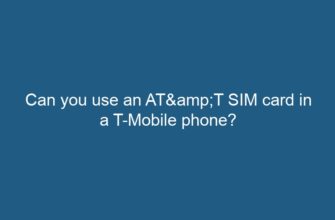When using a phone, you may occasionally encounter a message that says “all channels are busy” or “all circuits are busy.” This can be quite frustrating, especially when you need to make an important call. In this article, we will delve into the meaning of this message and explore the various factors that can contribute to it. By understanding the causes behind this issue, you will be better equipped to deal with it and find alternative solutions.
- 1. Introduction to channel allocation in phone networks
- 1.1 Physical channels
- 1.2 Virtual channels
- 2. Understanding the “all channels are busy” message
- 2.1 Network congestion
- 2.2 Local exchange capacity
- 2.3 Call blocking due to maintenance or technical issues
- 2.4 Call restrictions and limitations
- 3. Dealing with the “all channels are busy” issue
- 3.1 Try again later
- 3.2 Use an alternative communication method
- 3.3 Contact your service provider
- 3.4 Opt for a different service or network
- 3.5 Upgrade your network infrastructure
- 4. Frequently Asked Questions (FAQs)
- FAQ 1: Why do I receive the “all channels are busy” message even during off-peak hours?
- FAQ 2: Can I do anything to prevent the “all channels are busy” message?
- FAQ 3: Why does the “all channels are busy” message sometimes play even when I call a different number?
- FAQ 4: Can I get a refund from my service provider for failed calls due to the “all channels are busy” issue?
- FAQ 5: Are there any technical solutions to overcome the “all channels are busy” issue?
- FAQ 6: Can the “all channels are busy” message occur in digital networks as well?
- FAQ 7: Is the “all channels are busy” issue a common occurrence?
- 5. Conclusion
1. Introduction to channel allocation in phone networks
Before diving into the specifics of the “all channels are busy” message, it’s important to understand the concept of channel allocation in phone networks. In telecommunication systems, channels refer to the pathways through which voice and data signals are transmitted. These channels can be physical or virtual, and they are responsible for carrying information between callers.
1.1 Physical channels
Physical channels are typically associated with traditional, analog phone networks. In these systems, each physical channel represents a dedicated wire or circuit that connects two callers. When a call is made, a physical channel is allocated to establish a connection between the calling and receiving parties. The number of physical channels available is limited and can vary depending on the capacity of the network.
1.2 Virtual channels
Virtual channels, on the other hand, are commonly used in digital phone networks, such as cellular networks and Voice over IP (VoIP) systems. Unlike physical channels, virtual channels are not tied to specific wires or circuits. Instead, they are dynamically created and managed by the underlying network infrastructure. Virtual channels allow for more efficient use of network resources and can accommodate a larger number of simultaneous calls compared to physical channels.
2. Understanding the “all channels are busy” message
When you receive the message “all channels are busy” on your phone, it means that the available channels, whether physical or virtual, are currently occupied or unavailable to handle your call. This message is typically played by an automated voice system or displayed on the phone’s screen to inform you that your call cannot be connected at the moment.
The “all channels are busy” message can have several causes, which we will explore in the following sections.
2.1 Network congestion
Network congestion occurs when there is a high volume of calls or data traffic within a specific network. This can happen during peak usage hours or in densely populated areas where many people are simultaneously using their phones. When the network becomes congested, all available channels may be occupied, resulting in the “all channels are busy” message.
2.2 Local exchange capacity
The capacity of the local exchange, or the telephone exchange serving your area, can also contribute to the “all channels are busy” message. If the local exchange does not have enough physical or virtual channels to handle all incoming calls, it may reach its capacity limit. In such cases, any additional calls will be rejected with the “all channels are busy” message.
2.3 Call blocking due to maintenance or technical issues
Phone networks require regular maintenance and upgrades to ensure optimal performance. During these maintenance activities, certain channels may be temporarily unavailable. Additionally, technical issues, such as equipment failures or software glitches, can also result in blocked channels. In both cases, the “all channels are busy” message may be triggered to inform callers that their calls cannot be connected due to these issues.
2.4 Call restrictions and limitations
Some phone networks or service providers impose restrictions or limitations on certain types of calls. For example, international calls or calls to premium-rate numbers may require specific channels or incur additional charges. If the allocated channels for these types of calls are already occupied or if there are restrictions in place, you may encounter the “all channels are busy” message when attempting to make such calls.
3. Dealing with the “all channels are busy” issue
While encountering the “all channels are busy” message can be frustrating, there are several steps you can take to deal with this issue effectively. Here are some possible solutions:
3.1 Try again later
If the “all channels are busy” message is caused by network congestion or local exchange capacity limitations, waiting for some time and trying again later can often resolve the issue. As network traffic subsides or additional channels become available, you will have a higher chance of successfully connecting your call.
3.2 Use an alternative communication method
If your call is not urgent or time-sensitive, consider using alternative communication methods, such as instant messaging, email, or video calls. These methods can help you stay connected and convey your message without relying on traditional phone calls.
3.3 Contact your service provider
If you frequently encounter the “all channels are busy” message or believe there might be an issue with your phone service, it is advisable to contact your service provider. They can provide insights into network conditions, potential maintenance activities, or any limitations that may affect your ability to make calls.
3.4 Opt for a different service or network
If the “all channels are busy” issue persists and significantly hampers your ability to make calls, you may consider switching to a different phone service provider or network. Research and compare the offerings of different providers to find one that suits your needs and offers better call connectivity.
3.5 Upgrade your network infrastructure
If you frequently encounter the “all channels are busy” message in your business or organization, it might be worth considering upgrading your network infrastructure. Investing in more robust and scalable systems can help alleviate congestion and provide a higher capacity for simultaneous calls.
4. Frequently Asked Questions (FAQs)
FAQ 1: Why do I receive the “all channels are busy” message even during off-peak hours?
During off-peak hours, there may still be localized congestion or limitations in specific network areas. Additionally, maintenance activities or technical issues can occur at any time, leading to the “all channels are busy” message.
FAQ 2: Can I do anything to prevent the “all channels are busy” message?
As an individual user, you have limited control over network congestion or local exchange capacity. However, you can try using alternative communication methods or contacting your service provider for assistance.
FAQ 3: Why does the “all channels are busy” message sometimes play even when I call a different number?
The “all channels are busy” message is not specific to a particular number. It indicates a network-wide issue where all available channels are busy or inaccessible, affecting all outgoing calls.
FAQ 4: Can I get a refund from my service provider for failed calls due to the “all channels are busy” issue?
Refund policies vary between service providers. It is advisable to check the terms and conditions of your service agreement or contact your provider directly to inquire about their refund policy for failed calls.
FAQ 5: Are there any technical solutions to overcome the “all channels are busy” issue?
Technical solutions, such as implementing load balancing mechanisms or upgrading network infrastructure, can help mitigate network congestion and increase the available channels. However, these solutions require coordination and investment from service providers or organizations.
FAQ 6: Can the “all channels are busy” message occur in digital networks as well?
Yes, the “all channels are busy” message can occur in both traditional analog networks and digital networks. The underlying cause may differ, but the result is the same – the unavailability of channels to establish a call.
FAQ 7: Is the “all channels are busy” issue a common occurrence?
The frequency of encountering the “all channels are busy” message can vary depending on the network conditions, geographical location, and other factors. It is more likely to occur during peak usage hours or in areas with high call volumes.
5. Conclusion
Encountering the “all channels are busy” message on your phone can be frustrating, but it is important to understand that it is often a result of network congestion, local exchange capacity limitations, maintenance activities, or technical issues. By familiarizing yourself with the possible causes and exploring alternative communication methods, you can effectively deal with this issue. Additionally, contacting your service provider or considering infrastructure upgrades can help improve call connectivity and reduce the occurrence of the “all channels are busy” message.










